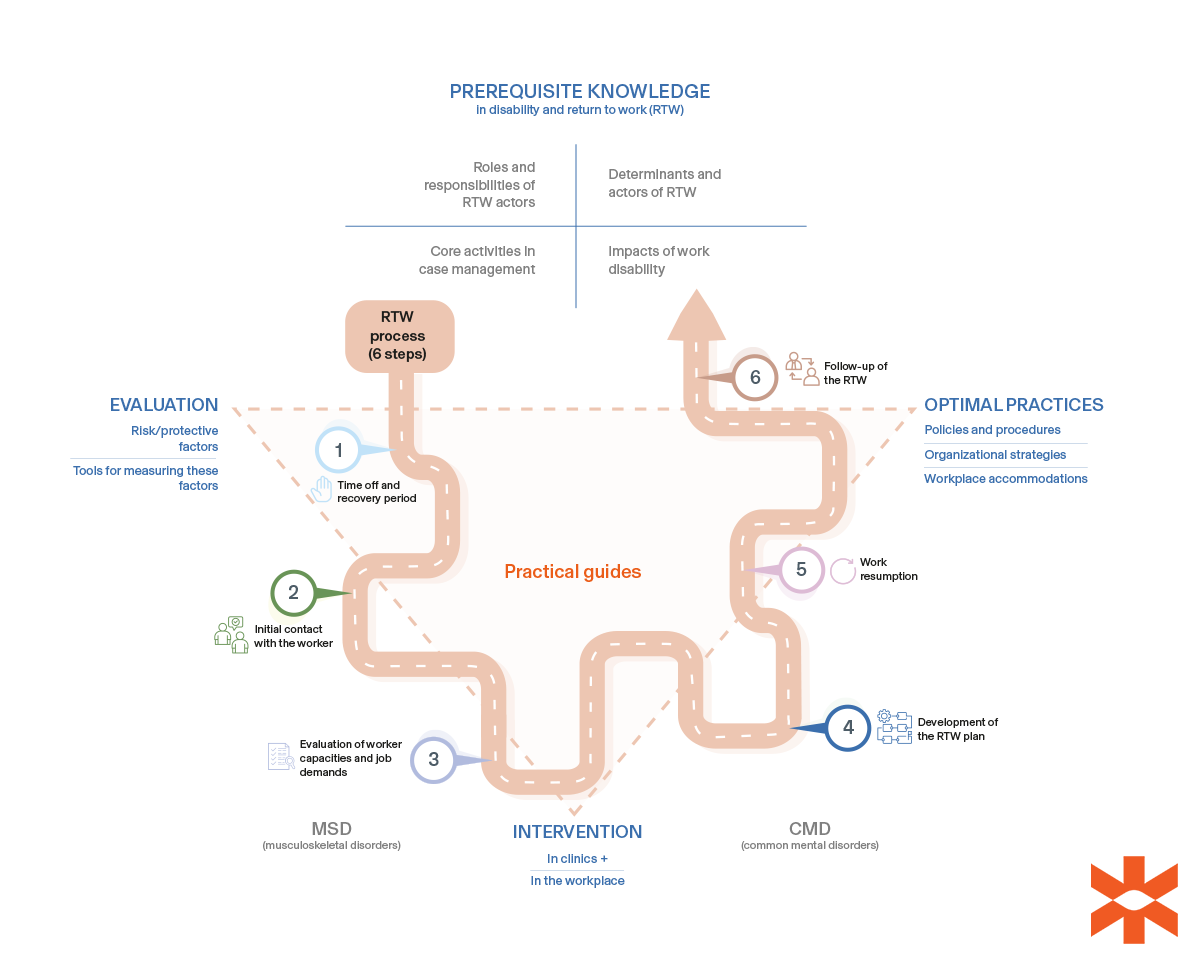This Web site focuses on the prevention and management of work disability and the implementation of effective practices that facilitate a healthy and sustainable return to work (RTW).
Titled Work disability and return to work, it is intended for the key actors in the RTW process, whether in companies, in the rehabilitation field or at insurers. Prepared by a team of scientists and representatives of these various actors, it offers a source of reliable, organized information aimed at promoting the adoption of best practices in prevention and occupational reintegration.
A site designed for return-to-work stakeholders
The information presented has been prepared specifically for people involved in managing RTW, namely:
- Workplaces: employers, direct supervisors, unions, OHS committees, RTW coordinators and human resources.
- Rehabilitation professionals: occupational therapists, ergonomists, guidance and vocational counsellors, psychologists and psychiatrists, doctors and nurses, physiotherapists and physiotherapy technologists.
- Insurers: claims adjudicators and rehabilitation advisors.
Health problems discussed
The health problems discussed are those most likely to be work-related. They include musculoskeletal disorders such as low back pain, neck pain, joint pain, types of tendinitis (rotator cuff tendinitis in the shoulder, epicondylitis, etc.) and carpal tunnel syndrome. They also include common mental disorders such as anxiety and depressive disorders and those related to trauma and stress.
Practical content
The site highlights the strategies and tools needed to promote and support RTW. While it does not discuss specific medical or insurance-related interventions given that it is designed from a workplace perspective, its content is particularly relevant for professionals who interact with members of an organization in a RTW context.

This site gives RTW stakeholders one-stop access to practical resources, guidelines and best practices for supporting a healthy and sustainable RTW.